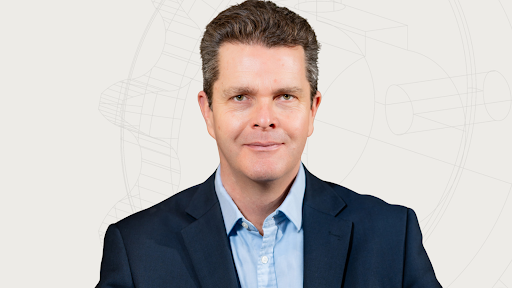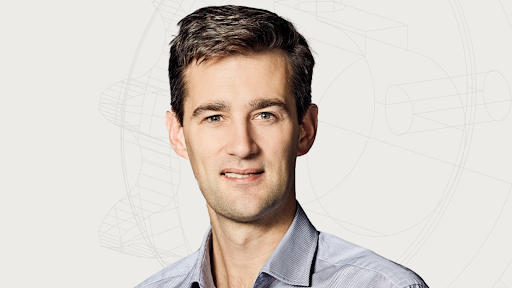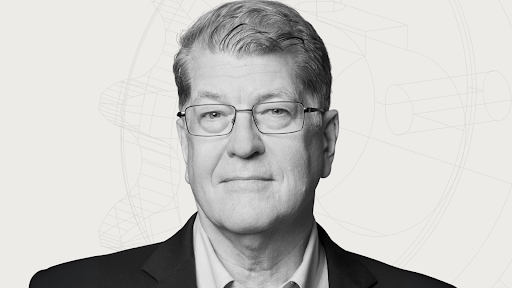.png)
In this Telescope LENS Q&A, we talk with Heather Panton, General Counsel at Labrys Technologies. A former national security lawyer in the UK government who transitioned to the startup space two years ago, Heather shares insights on building compliance into innovation from the ground up, bridging the gap between private sector innovation and government needs, and creating technology that serves the public good.
Tell me a little bit about what your day-to-day work looks like and how that ties into Telescope?
Day-to-day, I help guide my company and the other organisations I work with through the complex intersection of law, technology, and security. So that means everything from ensuring that the products we're building and designing are compliant by design, working closely with the engineers and developers building the software we're working with. It also means advising on risk across the broad spectrum of activities the company is involved in, interpreting and applying regulatory frameworks, and providing guidance on emerging legal issues as they arise. It often comes to the general counsel for a sort of first look.
My work is about ensuring that innovation in defence and national security technology can scale responsibly and securely.
The work that Telescope does in terms of its focus on ensuring we're harnessing technological development for the benefit of society and also advancing that dialogue between the start-up sectors in that space and government really resonates with me. It's also central to the role that I'm doing within startups, which is also about securing the dialogue between the public sector and the private sector startups that I'm working for. And also making sure that we, within the startup space, are being responsible in how we develop, understanding what we're creating, the environments that we're working in, and collaborating closely with the government in that space to deliver secure, trustworthy technology in the interests of prosperity and to the benefit of society as a whole.
Is there an idea you've come across recently that made you think: this could change things for the better?
Here in the UK, a 12-year-old girl in a Glasgow high school invented a solar-powered thermal blanket built into a backpack. It's not AI technology, but I just thought of impressive engineering and design from this girl. During the day, the solar power charges this thermal blanket, and the heat is distributed at night. It is being built and distributed to homeless people across Glasgow. Some incredible people at a very young age are relentlessly driving forward this vision they ‘must develop’. I see that ambitious focus and drive with the entrepreneurs who are working in this space.
In terms of my own work and where I see things that are improving the way we work, I think the one for me is the move I'm seeing increasingly with the teams that I work with—this idea of embedding compliance as a strategic and enabling asset as part of the software or hardware that's being built, actually thinking about that from the start. I think it's important because, throughout my career as a lawyer, compliance and law are often seen as slowing innovation. Quite often, people don't want to come to the lawyer and say, What do you think about this or Can we do that? Because there's a concern that the answer will be ‘no’.
I think changing the way we work and approaching it differently—building things from the start, integrating at the outset, really working closely with those teams rather than sitting in a silo elsewhere where requests are fed to faceless lawyers—we can really work quite well together in the innovating space to integrate it from the outset rather than a bolt-on at the end. Innovation isn't slowed and the ultimate product is improved.
How can we do a better job of finding and lifting up emerging or nontraditional talent?
Significant segments of society aren't engaged in the rapid rate at which technology develops and permeates every aspect of our lives. Sometimes when talking with friends who work in entirely different fields, without a direct connection to tech development, there can quite often be what seems like a fear—a fear of what this is and how it works, and particularly in terms of their rights, and whether it's going to take jobs away. That's one of the big questions that comes up a lot: will this threaten our future jobs, particularly regarding AI developments?
From my point of view, there's probably a question about how we do the education piece. How do we do the education piece for people who've not grown up as part of this? There are still so many things that I'm ignorant about, and I don't understand. I'm on a constant journey of learning and reading and then needing to go to some of the experts at work and say explain this because I've read it three times and I have no idea how this works or what it is or what it does.
Some people may be afraid to start trying to understand. There's a concern about looking or feeling ignorant. But that bit of it, for me, is the worry because the concern is that if we don't get wider engagement from society on some of the issues that are coming up, the really important issues as technology develops, then we won't really get diverse and democratic input into what steps we need to take to address those. It's the education piece for me.
Is there someone whose work has inspired you recently in advancing security and prosperity?
At a very general level, looking across startups and these really ambitious and hardworking entrepreneurs developing stuff across various spaces and not just my own, but across the medical advancement and the education space in terms of looking at how technology can really transport and advance what we're doing. Regularly, yes, I am inspired by those people, and I see myself as a support element to enable them to deliver what they can do, in my role supporting CEOs in startups.
In terms of particular individuals, going back to being a woman in a field that's still not gender balanced—the defense space is still not a gender balanced space—I do find inspiration in the female trailblazers. Most recently, people like Kaja Kallas, the EU High Representative for Foreign Affairs and Security Policy. She was the first female Prime Minister of Estonia. She led her cabinet through many challenging phases in a short time during that role, through COVID and the energy crunch, particularly as Russian aggression escalated. And she also had the most gender balanced cabinet that Estonia had ever had.
She's always given fearless and formidable support to Ukraine, where other leaders in our same space, in Europe, in the UK, haven't always spoken out quite so ‘formidablely’. She's also provided a powerful strategic defense vision for Europe and the UK. She's recently spoken out in terms of attempts by certain world leaders to secure peace, and she's done that in a very honest and refreshing way. Again, I haven't seen that straightforward and as clear a narrative from many of our other leaders. Right now, she's one of those people making me smile quite a lot when I hear her, and I think there's something pretty inspiring about how she conducts herself.
As you look ahead, what gives you the most hope?
The more we collaborate, the more we understand those diverse views, we can build better. We build better; we create and innovate more effectively. There can't be anything bad about that. It's the collaboration that does that. And finding a way we can make that a responsibility. It must be a responsibility for us. If we leave it to choice and chance, how do we embed that responsibility into the companies and governments that have the opportunity to make this happen?



.png)
In this Telescope LENS Q&A, we talk with David Winickoff, Head of the Responsible Innovation Unit at the Organization for Economic Cooperation and Development (OECD). From his perspective bridging academic expertise with international policy development, David shares insights on how to realize the enormous potential of emerging technologies while managing risks—and why anticipating technological change, rather than reacting to it, is key to building a better future.
.png)
In this Telescope LENS Q&A, we talk with Dr. Rumman Chowdhury, CEO and founder of Humane Intelligence Public Benefit Corporation and co-founder of the nonprofit Humane Intelligence. From her perspective as both a social scientist and AI ethics pioneer, Rumman shares insights on bridging the gap between technology development and what people actually want to see in the world—and how everyday voices can shape the AI systems being built around us.
.png)
In this Telescope LENS Q&A, we talk with Erika Staël von Holstein, Co-Founder and Chief Executive of Re-Imagine Europa. Drawing from her expertise in neuroscience and narrative strategy, Erika shares insights on how our thinking patterns shape reality, why we need to listen to those we disagree with, and how AI can help us build wiser technology by understanding the limits of our own narratives.
.png)
In this Telescope LENS Q&A, we talk with Michelle Giuda, CEO of the Krach Institute for Tech Diplomacy at Purdue University. From her perspective as both a former student athlete and a leader in global technology policy, Michelle shares insights on how the United States and its allies can deliberately shape a future of freedom, prosperity, and security, powered by trusted technology and new models of collaboration.
.png)
In this Telescope LENS Q&A, we talk with Kristen Edgreen Kaufman, Senior Vice President of Global Impact Initiatives at the U.S. Council for International Business (USCIB). With extensive experience bridging global public policy and private sector interests, Kristen shares insights on fostering innovation ecosystems, building coalitions across political divides, and ensuring American competitiveness in emerging technologies.
.png)
In this Telescope LENS Q&A, we talk with Chris Massey, founder and CEO of The Brds Nst. Drawing from his diverse experience across government and private sector, Chris shares insights on demystifying government for entrepreneurs, the transformative potential of AI across healthcare and elder care, and how innovation can serve both security and prosperity when we all "row in the same direction."
.png)
In this Telescope LENS Q&A, we talk with Heather Panton, General Counsel at Labrys Technologies. A former national security lawyer in the UK government who transitioned to the startup space two years ago, Heather shares insights on building compliance into innovation from the ground up, bridging the gap between private sector innovation and government needs, and creating technology that serves the public good.


